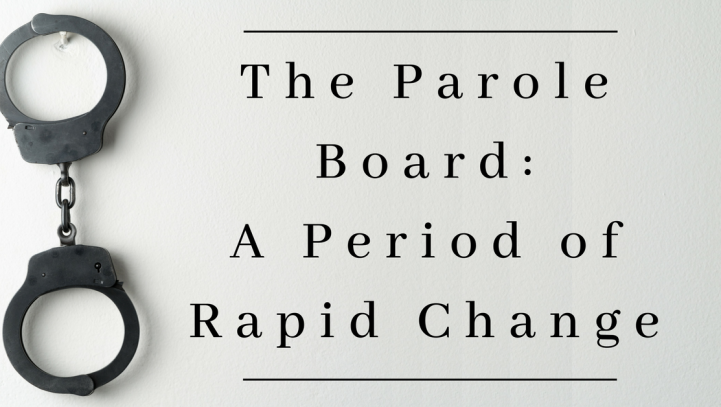The Parole Board – A Period of Rapid Change
Your Update on the Parole Board … 
Following the Parole Board decision to release John Worboys, the taxi driver rapist, there has been a review of its functions, in particular a review of Rule 25 of the Parole Board Rules 2016 that prevented the Parole Board disclosing any information relating to its hearings.
That rule was found to be unlawful in a judicial review of the decision in Worboys.
The government has now published the Parole Board (Amendment) Rules 2018 as an initial and urgent step to remove the blanket ban on disclosure of information. These new rules will come into force on the 22nd May 2018. The rules are not retrospective and will not apply to decisions made before that date.
The Parole Board will now be able to make summaries of their decisions, to release or not to release a prisoner, available for the first time.
Decisions
The decisions referred to are those made by a single member of the Parole Board under Rule 14(7) or under Rule 24 of the Parole Board Rules 2016.
Circumstances requiring release of a summary
If the Parole Board is informed that a victim wishes to receive a summary, then it can only be withheld in exceptional circumstances.
If any other person wishes to receive a summary they may do so if disclosure is justified in the interests of open justice.
There is a discretion to disclose further information outside of the summaries to victims and other persons. There will be protections in place to protect the privacy of victims and to protect the candour and safety of witnesses.
Victim
A victim is defined in the rules as someone who is participating in the Victim Contact Scheme in respect of a prisoner who is party to the proceedings.
Further review
 A consultation has now been launched in respect of a proposal for a new mechanism to allow challenges of a Parole Board decision without the need to resort to judicial review proceedings.
A consultation has now been launched in respect of a proposal for a new mechanism to allow challenges of a Parole Board decision without the need to resort to judicial review proceedings.
The government is seeking views on the proposed parameters for and operation of the new reconsideration process. This is in respect to which types of decisions should be reconsidered; who could apply for reconsideration; on what basis a decision should be reconsidered and how to make the process transparent whilst protecting panel members, victims and others.
The Parole Board has welcomed the change to allow more transparency, something which it had previously called for. It has urged the need to keep its independence whilst acknowledging that there may need to be more fundamental changes to the system to ensure that its status, structure and processes are fit for any new responsibilities that may arise.
The Parole Board would resist public hearings due to disclosure of certain information and fears that it may not encourage candour from the prisoner and witnesses. It would also resist the provision of specific information that may disrupt prisoner resettlement, and the release of medical reports.
This is obviously an ongoing review and fast developing area of prison law. Nick Hardwick, the former head of the Parole Board who was forced out following the Worboys case, commented on the new rules in these terms:
‘As suspected. Not retrospective and the minimum required by the High Court judgment. Risks creating all the challenges of openness without satisfying anybody. Worst of both worlds I fear.’
How we can assist
We will be watching closely to consider the way in which cases are presented and any impact upon clients.
If you have any concerns or simply to discuss any aspect of your case, please contact Oliver Gardner on 0161 872 9999 or oliver.gardner@howardssolicitors.com




